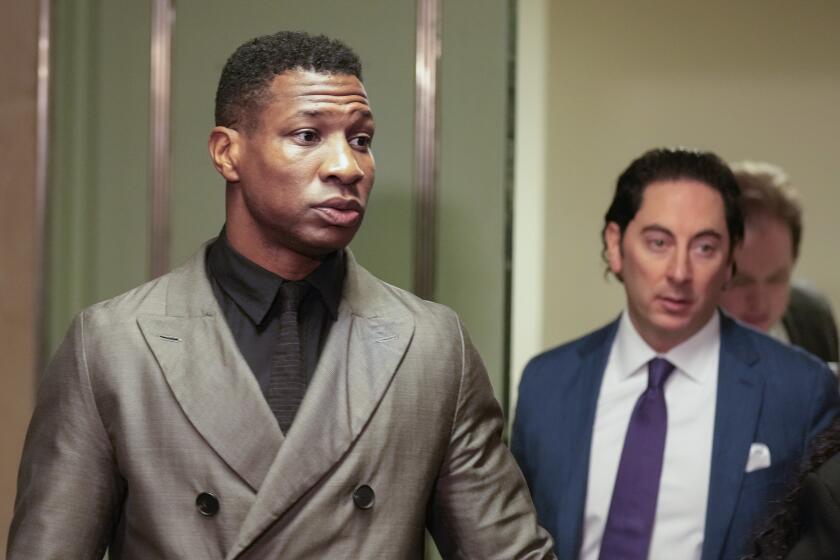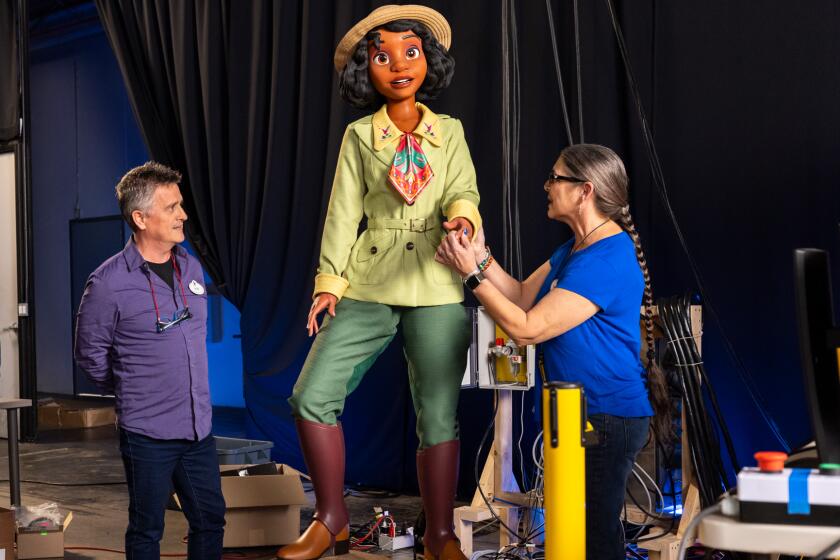Supreme Court quotes ‘Spider-Man’ in toy patent case, gives win to Marvel
Two quick takeaways from the Supreme Court’s ruling in a patent case over a Spider-Man toy: Marvel triumphed again, and Justice Elena Kagan must have had fun sneaking superhero references into the official decision.
“[I]n this world, with great power there must also come — great responsibility,” Kagan wrote in Monday’s Kimble vs. Marvel Entertainment decision, explaining why the high court chose not to overrule an older decision that says patent agreements cannot require that royalties keep being paid after the patent expires.

Kagan noted that the quote came from Stan Lee and Steve Ditko’s Amazing Fantasy No. 15, the 1962 comic in which Spider-Man made his debut.
The case centered on an agreement between Stephen Kimble, who patented a toy that let users shoot “webs” made of foam string from their hands, and Marvel, which bought Kimble’s patent and agreed to pay him a 3% royalty on all sales of such a toy.
There was no end date to this agreement, Kagan wrote, slipping in a reference to the theme song of the 1960s “Spider-Man” cartoon series.

You know the song.
After making the deal with Kimble, Marvel attorneys became aware of a 1964 Supreme Court ruling that meant the entertainment giant should have been able to stop paying royalties to Kimble after the toy’s patent ran out in 2010.
The 1964 ruling that paved the way for Marvel to walk away from the deal is controversial. Cornell University Law School’s Legal Information Institute calls the Brulotte vs. Thys Co. decision “a product of a bygone era,” saying it’s “the most widely criticized of this court's intellectual property and competition law decisions.”
Kimble argued that the Brulotte decision should be tossed because it’s wrongheaded and because it suppresses innovation and harms the nation’s economy.
The Supreme Court didn’t buy it. Making patent policy is Congress’ job, not the court’s, and Kimble did not prove that the existing rules do the harm he alleged, Kagan wrote in the decision.
Plus, she added, the Brulotte decision’s “close relation to a whole web of precedents means that overruling it could threaten others.”
One more sentence Kagan apparently couldn’t resist writing: “Patents endow their holders with certain superpowers, but only for a limited time.”
Five of the other justices — Antonin Scalia, Anthony M. Kennedy, Ruth Bader Ginsburg, Stephen G. Breyer and Sonia Sotomayor — joined Kagan’s opinion.
Justice Samuel A. Alito Jr., joined by Clarence Thomas, filed a dissent calling the Brulotte decision an “obvious mistake” that wasn’t based on patent law. The dissent contained no gleeful “Spider-Man” references.
For more news, follow @raablauren on Twitter.
The biggest entertainment stories
Get our big stories about Hollywood, film, television, music, arts, culture and more right in your inbox as soon as they publish.
You may occasionally receive promotional content from the Los Angeles Times.




